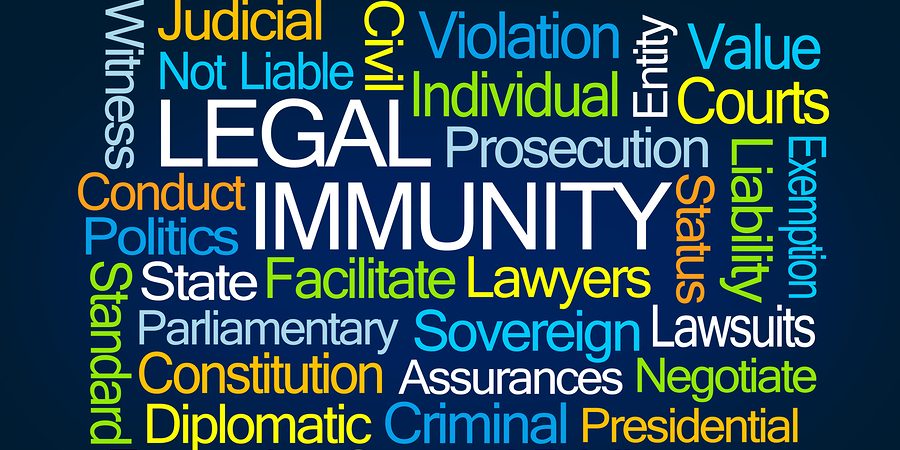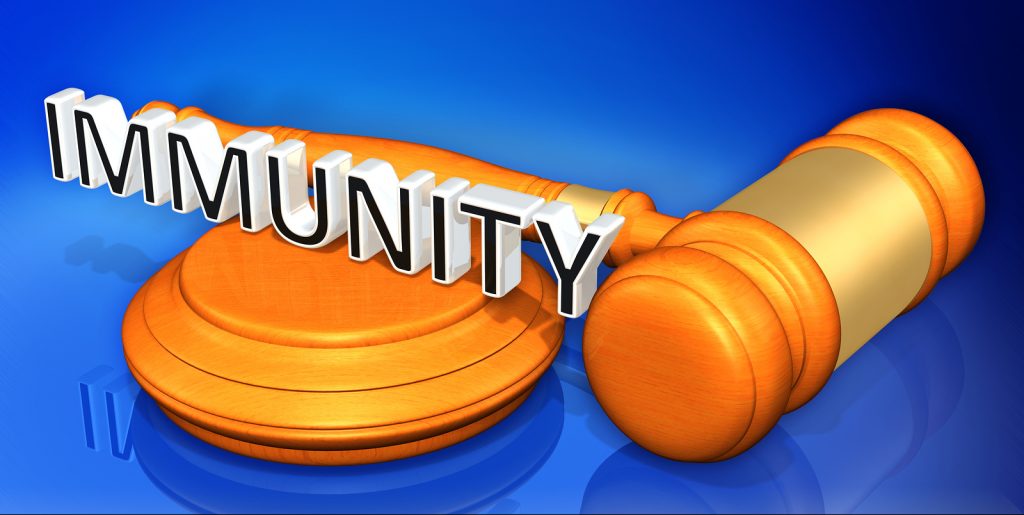You’ve probably seen your favorite vigilante in your favorite movie get immunity for their crimes in trade for saving the city. Or perhaps a key protagonist that swaps valuable testimony for a pass on their particular offense. But do these things actually happen in real life, to real people? Continue reading to learn what immunity means for a witness also charged with a crime in a criminal case.

Prosecution Wants to Make a Case
There are times when a prosecutor will offer a suspected criminal immunity for their crimes if they help law enforcement build a case against another suspect, or group of suspects, by being a witness. Immunity is basically a “hall pass” or “get out of jail free card” for a person who is charged with or suspected of a minor crime. In exchange for vital information and testimony that will help prosecute a more high-profile criminal, a prosecutor will not move forward with charging a suspect.
Factors That Influence Immunity
Not every is offered immunity. Immunity is typically reserved for more high-profile cases and long-standing investigations. Common cases that might involve an offer of immunity include crime bosses, drug traffickers, smugglers/black-marketers, white collar fraud, sex trafficking, and similar serious crime enterprises.
However, this does not mean that only high-profile cases are eligible for such criminal leniency. There is a chance that a lower-spectrum criminal cases might involve immunity. It depends on several factors, such as the current on-going criminal investigations in town, the level of danger the upper crime poses to the community, and more.
Limitations to Immunity
Immunity is a great opportunity for a minor criminal, as it allows avoiding jail, hefty fines, and a permanent record. However, there are limitations and rules that go along with this type of legal arrangement. After all, immunity is more of an inventive for prosecution, who uses it as a tool to get what they want.
Once a person is granted immunity, they must testify in court against the person they have information on. If the person refuses to testify after being given immunity, they will be held in contempt of court. See our blog, “Can I Go to Jail for Criminal Contempt?” to learn what you need to know about criminal contempt in Indiana.
Furthermore, being granted immunity does not mean that a person is entirely cleared. Prosecution could later indict an immunized witness, so long as prosecution and law enforcement can prove that the case is based exclusively on evidence separate from the witness’s immunized testimony.
In such cases, if an immunized witness wishes to claim immunity as a defense to being indicted, they have the burden of providing sufficient evidence that 1) prosecution awarded immunity, and 2) the testimony that earned them immunity is relevant to the charges they are being indicted on. After that, the burden of proof shits to the government.
Need Help With Immunity in Indiana?
Call the Law Office of David E. Lewis at 317-636-7514 to schedule a free initial consultation with aggressive Indiana criminal defense attorney who will stop at nothing to protect your rights and preserve your freedoms. Whether you have already been granted immunity, or wish to make a deal with prosecution, he can help. With decades of hands-on experience, you can trust Attorney David E. Lewis to build you a strong and impactful defense against your Indiana criminal charges.



